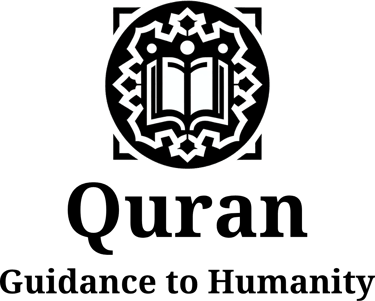The most important event summary
GENESIS


Quranic themes intricately weave together the purpose of human existence, divine mercy, the trials of free will, the deception of Satan, and the ultimate accountability to God. These Quranic themes provide a comprehensive understanding of humanity’s purpose, test, and moral responsibility. Humans are created with free will and the ability to choose their path. While the Quran acknowledges the presence of adversaries like Satan, it also affirms that divine mercy and guidance are always available for those who seek to follow God's path. They reflect humanity's special role as moral agents and stewards of the Earth, with their choices determining eternal outcomes.
Here is a brief summary of the key points from Quranic account of genesis:
· Creation of Humans and Their Purpose
God created humans from clay (humble origin) and breathed His spirit into them, granting them intellect, free will, and responsibility. Adam and his wife were placed in Paradise and instructed to avoid a specific tree, symbolizing the test of their obedience. Their creation as God's vicegerents ('Khalifa' in Arabic) on Earth emphasizes humanity's stewardship and moral accountability.
· The Fall of Adam and Human Testing
Adam and his spouse, deceived by Satan, ate from the forbidden tree, resulting in their descent from the state they were in. This symbolizes the transition to earthly life, where humans must exercise free will in alignment with divine guidance. Earth serves as a stage adorned for moral and spiritual testing, where humanity is tasked to strive for righteousness and avoid Satan's deception.
· Satan's Rebellion and His Role
Satan (Iblis), defied God allegorically by refusing to submit to Adam (meaning to serve humanity), citing his own superiority. His arrogance and rebellion highlighted the struggle between obedience and ego reflecting the danger of arrogance and the refusal to submitting to God's commands. After being cast out, Satan vowed to mislead humanity and became their most ardent enemy. However, God assures that Satan holds no power over those who sincerely worship (serve) God alone.
· Human Covenant and Responsibility
Humans are reminded of a primordial covenant made with God, affirming His Lordship and humanity's responsibility to uphold divine commands. This covenant reflects humanity's acceptance of free will, freedom of choice and the test that comes with it. The Quranic idea of this covenant suggests that human beings have an innate awareness of God, which forms the basis of their moral responsibility. Breaking this covenant whether through idolatry, arrogance, or corruption—leads to spiritual loss, while fulfilling it ensures divine guidance and protection. The essence of human existence on Earth is a test of obedience to God, to live righteously, and to avoid the deception of Satan.
· Guidance, Misguidance, and Accountability
God provides guidance through His revelations (Quran), offering those who follow His path peace and security in this life and Paradise in the hereafter. Conversely, those who reject this guidance and act arrogantly face retribution, difficulties in this life and Hell in the hereafter. Human actions during this earthly life determine their ultimate destiny in the afterlife.
· Repentance. Divine Wisdom, Mercy and Redemption
After their disobedience, Adam and his spouse repented, and God forgave them, establishing the principle of repentance ('Tawbah' in Arabic) in Islam. This highlights God's immense mercy and forgiveness, illustrating that while human beings may fall into error, they can always return to God and seek His forgiveness. God is always willing to forgive those who sincerely repent, reform, and strive to follow His guidance. Life on Earth is part of a greater divine cycle: creation, death, resurrection, and return to God for judgment. God's use of allegories and trials illustrates the depth of His wisdom. These allegories are a means by which God communicates profound truths, making them accessible to believers and a source of contemplation for those who seek understanding. Despite human failings, God remains forgiving and merciful to those who repent and reform.
· The Central Role of Free Will
The Quran mentions a debate in the heavenly realm regarding God's decision to appoint a creation of free will (human beings) as His vicegerent on earth. This debate highlights the tension between the potential for good and evil within the human race. The angels expressed concern about humanity’s ability to fulfill their role responsibly, but God affirmed His wisdom and knowledge, underscoring that humans are endowed with knowledge, wisdom and the ability to choose between right and wrong. Humans were chosen because of their potential to learn, grow, and fulfill their purpose as God’s representatives on Earth. This test involves human beings making choices in the face of temptation and trials, demonstrating their loyalty to God and to uphold His commands.
The Quran underscores the balance between human freedom and accountability. Humanity's acceptance of free will grants the ability to make choices, but it also entails responsibility. Success lies in resisting Satan's deceptions, living righteously, and worshiping God alone.
